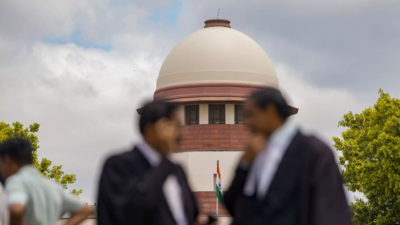NEW DELHI: The verdict by a nine-judge Supreme Court bench on Tuesday where the apex court held that the concept of 'material resources' of the community could not be extend to cover assets of private citizens has once again shone the spotlight on the debate that raged during this year's Lok Sabha elections. The build-up to the campaign saw Congress leader Rahul Gandhi pitching for 'jitni aabadi, utna haq' which envisaged equitable distribution of community assets among different castes based on their respective share in the population to be ascertained by a caste-wise enumeration. His colleague, Sam Pitroda, also spoke approvingly of the 'inheritance tax' in the US where more than half of the wealth of the rich gets transferred to the govt after their death.
"That is an interesting law. It says you in your generation made wealth and you are leaving now, you must leave your wealth for the public, not all of it, half of it, which to me sounds fair," Pitroda had said while noting the absence of a similar law in India. This sparked a fight with BJP, with PM Narendra Modi slamming Congress's advocacy for wealth redistribution.
In public meetings, he claimed that the proposal needed to be read along with former PM Manmohan Singh's thesis about minorities, especially Muslims, having the first right on national resources, which he said was a pursuit of vote bank politics in disguise. Congress refuted the charge. The govt's stand in the court was centred on drawing a distinction betw.











:upscale()/2024/12/23/986/n/1922441/ae269e286769e6f5b332b2.08351138_.jpg)







